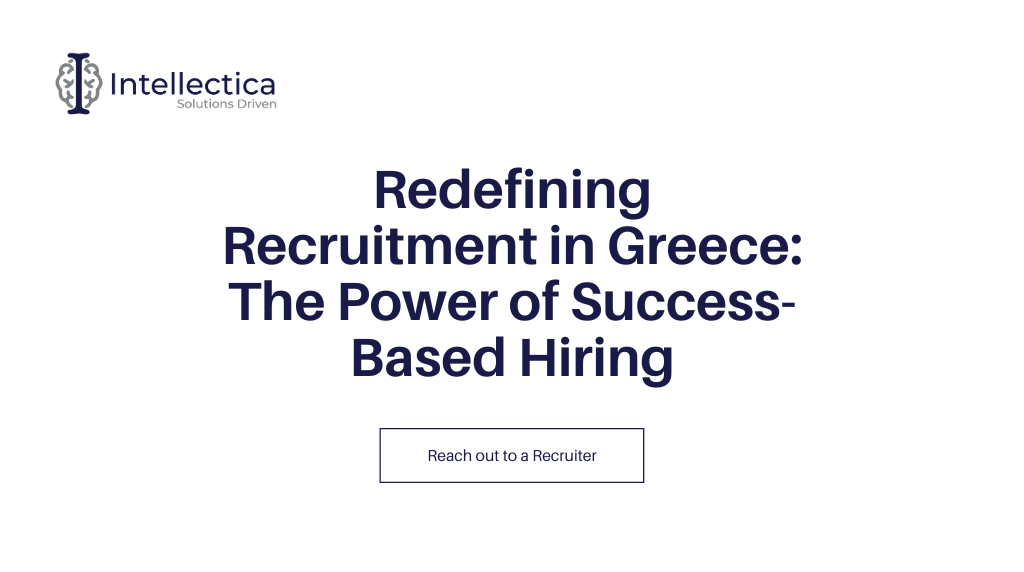
In an ever-evolving job market, recruitment methodologies are also in flux. As businesses seek to optimize every expenditure, they’re constantly on the lookout for more efficient ways to hire the best talent. In Greece, with its unique job market dynamics and economic landscape, Intellectica is revolutionizing recruitment with a success-based payment model. So, how exactly does paying only for successful hires change the game? Let’s explore.
1. Risk Mitigation for Employers
The traditional recruitment model often involves upfront fees, regardless of the outcome. This approach presents a significant financial risk for companies, especially if the hiring process drags on without success. With Intellectica’s model, employers only pay when they secure the right talent. This means businesses can budget more effectively and are guaranteed a return on their investment.
2. Quality Over Quantity
A success-based model incentivizes recruitment firms to prioritize quality. After all, if a client doesn’t hire, the recruiter doesn’t get paid. This drives a more rigorous candidate vetting process, ensuring that only the most suitable candidates are presented. In the long run, this leads to more successful placements and satisfied employers.
3. Efficiency and Speed
Knowing that payment is tied to a successful hire, the incentive to streamline and perfect the hiring process is significant. Employers can expect faster results without compromising on candidate quality. This is especially beneficial in the fast-paced Greek job market where the best talent is often quickly snapped up.
4. Building Trust in the Recruitment Process
In traditional models, skepticism can arise when employers are asked to pay significant fees upfront without a guaranteed successful placement. The pay-for-success model fosters trust. Companies can be confident that their recruitment partner is genuinely invested in their success, aligning the goals of both parties.
5. Adapting to the Greek Job Market
Greece’s job market has its own unique challenges. From economic shifts to the talent pool’s particular skill sets, understanding the nuances is crucial. A success-based payment model demonstrates a deep understanding of these challenges. By focusing on successful placements, recruitment firms show that they are truly attuned to the needs and dynamics of the Greek job market.
In Conclusion
Recruitment is not just about filling vacancies—it’s about finding the perfect match for both candidate and company. By introducing a payment model where fees are based solely on successful hires, Intellectica is not just aligning itself with the interests of businesses, but also setting a new gold standard in the Greek recruitment industry.
In the end, it’s a win-win scenario. Companies secure top talent without financial risk, and recruitment firms bolster their reputation by consistently delivering on their promises. This is the future of recruitment in Greece, and it’s already here.
